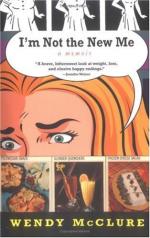Then the Mandisons moved away. That seemed to Windham like the end of things. He was awfully lonely, and thought a great deal about Mary in the months that followed, but was not quite sure of himself; though he was certain there was no one else he liked and admired half so much. But in the following winter he went to spend the holidays with the Mandisons, and when he came away he and Mary were engaged.
The next summer the Mandisons took a cottage at the shore, and Windham went to spend some weeks with them. Idly busy and calmly happy in the pleasant company of Mary and all the friendly house, the sunny days slipped by till one came that disturbed his dream. An aunt of Mary’s arrived with her husband, Dr. Saxon, and his niece, Agnes Maine. At the first glance Miss Maine challenged Windham’s attention. She was a tall and striking person, with a keen glance that he felt took his measure at the first look. She piqued his curiosity, and interested him more and more.
One day he saw her and Mary together, and caught himself comparing them, not in Mary’s favor. Panic seized him, and he turned his back on Miss Maine and devoted himself to Mary. Miss Maine went to stay with some neighbors, the Colemans. One night she was caught at the Mandisons by a storm. Mary asked Windham to entertain her, and he went and asked her to play chess. She declined coldly, and Windham turned away with such a look that Mary wondered what Agnes could have said so unkind. And the next day Miss Maine spoke so gently to him that it warmed him all through. Still he persistently avoided her.
The Colemans got up a play in the attic of their large old house. On the night of the performance the place was crowded. The first two acts went off smoothly.
Windham had been helping to shift the scenes, and was standing alone, looking over the animated spectacle as the audience chatted and laughed. Something in the play had made him think of Agnes Maine, though she was not in the cast, and he had not seen her. Suddenly, without any notice of her approach, she stood close to him, looking in his face. Her face was paler than usual, and her eyes had a startling light in them. She said only half a dozen low words, but they made him turn ghastly white. What she said was:
“The house is on fire down-stairs.”
He stood looking at her an instant, long enough to reflect that any alarm would result in piling those gay people in an awful mass at the foot of the one steep and fragile stairway. The stage entrance was little better than an enclosed ladder, and not to be thought of.
“Go and stand at the head of the stairs,” he said to her.
The bell rang for the curtain to rise, but he slipped back behind it, and it did not go up. Instead, Jeffrey Coleman appeared before it, bowing and smiling with exaggeration, and announced that the continuation of the performance had been arranged as a surprise below-stairs, and would be found even more exciting and interesting than the part already given. The audience were requested to go below quickly, but at the same time were cautioned against crowding, as the stair was rather steep and temporary. As they did not start at once, he came off the stage and led the way, going on down the stairs, and calling gayly to the rest to follow.




